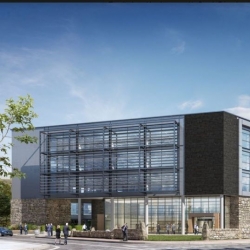To provide the best experiences, we use technologies like cookies to store and/or access device information. Consenting to these technologies will allow us to process data such as browsing behaviour or unique IDs on this site. Not consenting or withdrawing consent, may adversely affect certain features and functions.
The technical storage or access is strictly necessary for the legitimate purpose of enabling the use of a specific service explicitly requested by the subscriber or user, or for the sole purpose of carrying out the transmission of a communication over an electronic communications network.
The technical storage or access is necessary for the legitimate purpose of storing preferences that are not requested by the subscriber or user.
The technical storage or access that is used exclusively for statistical purposes.
The technical storage or access that is used exclusively for anonymous statistical purposes. Without a subpoena, voluntary compliance on the part of your Internet Service Provider, or additional records from a third party, information stored or retrieved for this purpose alone cannot usually be used to identify you.
The technical storage or access is required to create user profiles to send advertising, or to track the user on a website or across several websites for similar marketing purposes.
 The World Green Building Council (WorldGBC) has launched a new policy plan for the European Union to accelerate progress on decarbonising buildings and construction, one of the most heavily emitting sectors in the world. Developed with the support of a coalition of over 35 leading industry bodies through WorldGBC’s flagship BuildingLife project, the EU Policy Roadmap claims to be the first of its kind in Europe to address the whole life carbon impact of the built environment with the aim of creating climate neutral buildings. (more…)
The World Green Building Council (WorldGBC) has launched a new policy plan for the European Union to accelerate progress on decarbonising buildings and construction, one of the most heavily emitting sectors in the world. Developed with the support of a coalition of over 35 leading industry bodies through WorldGBC’s flagship BuildingLife project, the EU Policy Roadmap claims to be the first of its kind in Europe to address the whole life carbon impact of the built environment with the aim of creating climate neutral buildings. (more…)


















 A new guide to decarbonising public sector buildings and creating a net zero public estate has been launched by the Cabinet Office. The authors of
A new guide to decarbonising public sector buildings and creating a net zero public estate has been launched by the Cabinet Office. The authors of 
 According to a
According to a 
 A new report from
A new report from 
 Following the sobering message from the
Following the sobering message from the 







May 3, 2022
Get ready for the artificial intelligence revolution
by Reece Akhtar • AI, Comment, Workplace